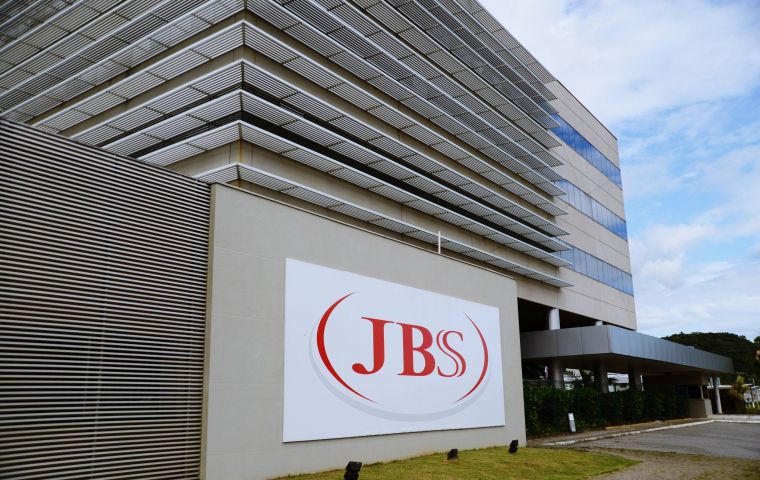MercoPress. South Atlantic News Agency
Brazilian leading meatpackers linked to ranches that use slave labor
 Brazil’s JBS, one of the world’s largest meat processing firms, bought cattle from two ranches that later ended up on Brazil’s “dirty list”
Brazil’s JBS, one of the world’s largest meat processing firms, bought cattle from two ranches that later ended up on Brazil’s “dirty list” An investigation published this week showed six Brazilian meatpacker firms bought cattle from ranches that used slave labor. Labor experts suggested on Wednesday that the firms must clean up their supply chains.
Brazil’s JBS, one of the world’s largest meat processing firms, bought cattle from two ranches that later ended up on Brazil’s “dirty list” of companies that employed slave labor, the anti-slavery rights group Reporter Brasil said this week.
JBS said it banned the two firms once they were on the dirty list, but it was unfair to expect JBS to stop working with any ranches facing allegations of slave labor from inspectors as those companies also had the right to defend their actions.
“Reporter Brasil is demanding JBS ... block producers based only on inspections (which) ... would be a disregard for that producer’s right of defense before public authorities”, JBS said.
In Brazil, employers whose workers have been rescued by labor inspectors are allowed to defend themselves in front of a panel, which is part of the economy ministry, and to appeal against charges of slavery.
The firm is only added to the dirty list - one of Brazil’s most powerful anti-slavery tools, currently with 114 names on it - if found guilty by the panel.
Brazil exports billions of dollars of beef every year and its meat processing industry has repeatedly come under fire for poor working conditions.
Under Brazilian law, forced labor is defined as a form of modern-day slavery that includes degrading work conditions and long hours that pose a risk to workers’ health or life and violate their dignity.
Legally it is difficult to make meatpackers responsible for buying cattle raised by slave labor, said Brazil’s leading anti-slavery labor prosecutor, Lys Sobral Cardoso.
Other firms named in the Reporter Brasil investigation were third parties to slavery - buying cattle from ranches that bought their cattle from blacklisted ranches.




Top Comments
Disclaimer & comment rulesCommenting for this story is now closed.
If you have a Facebook account, become a fan and comment on our Facebook Page!